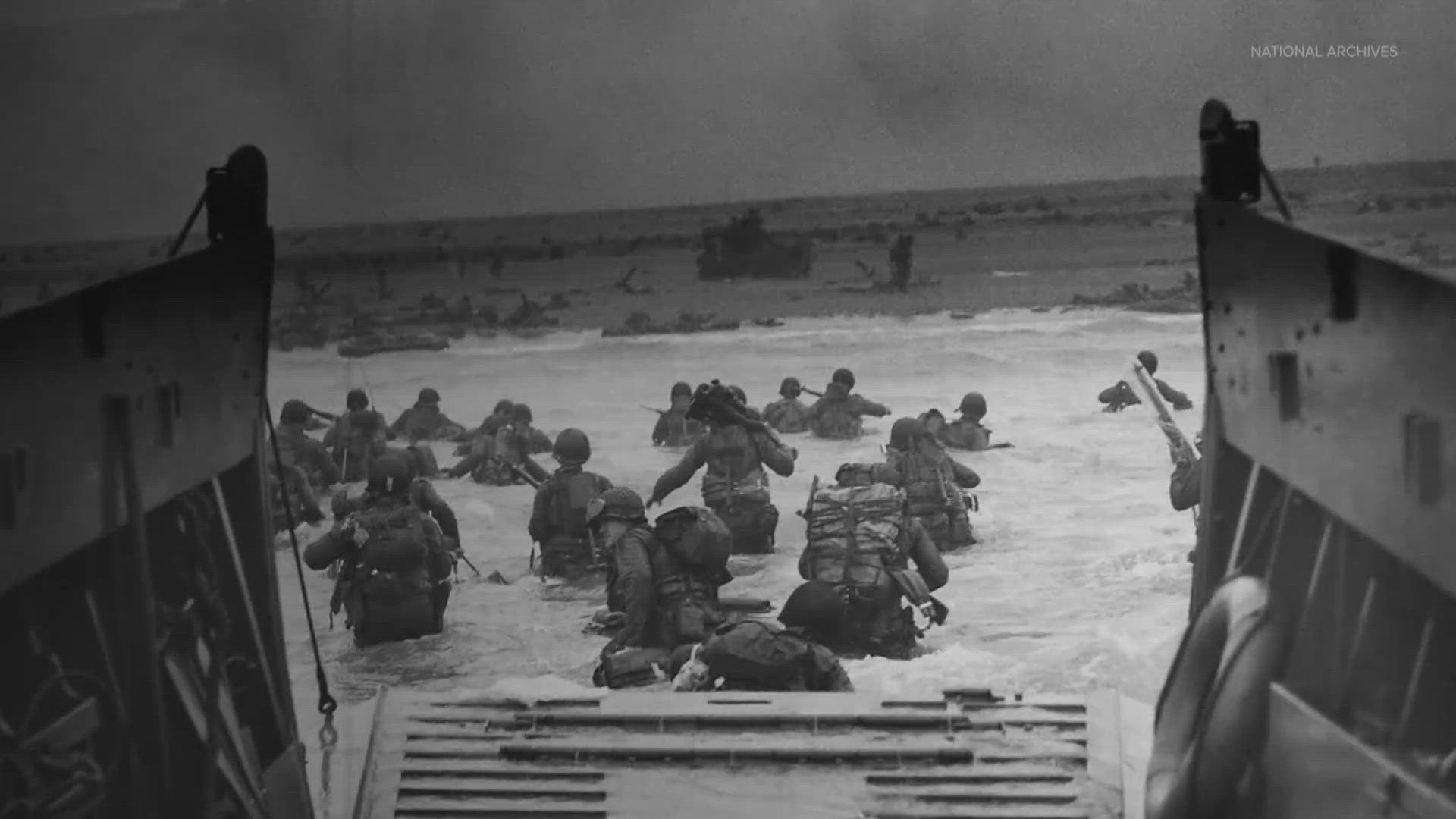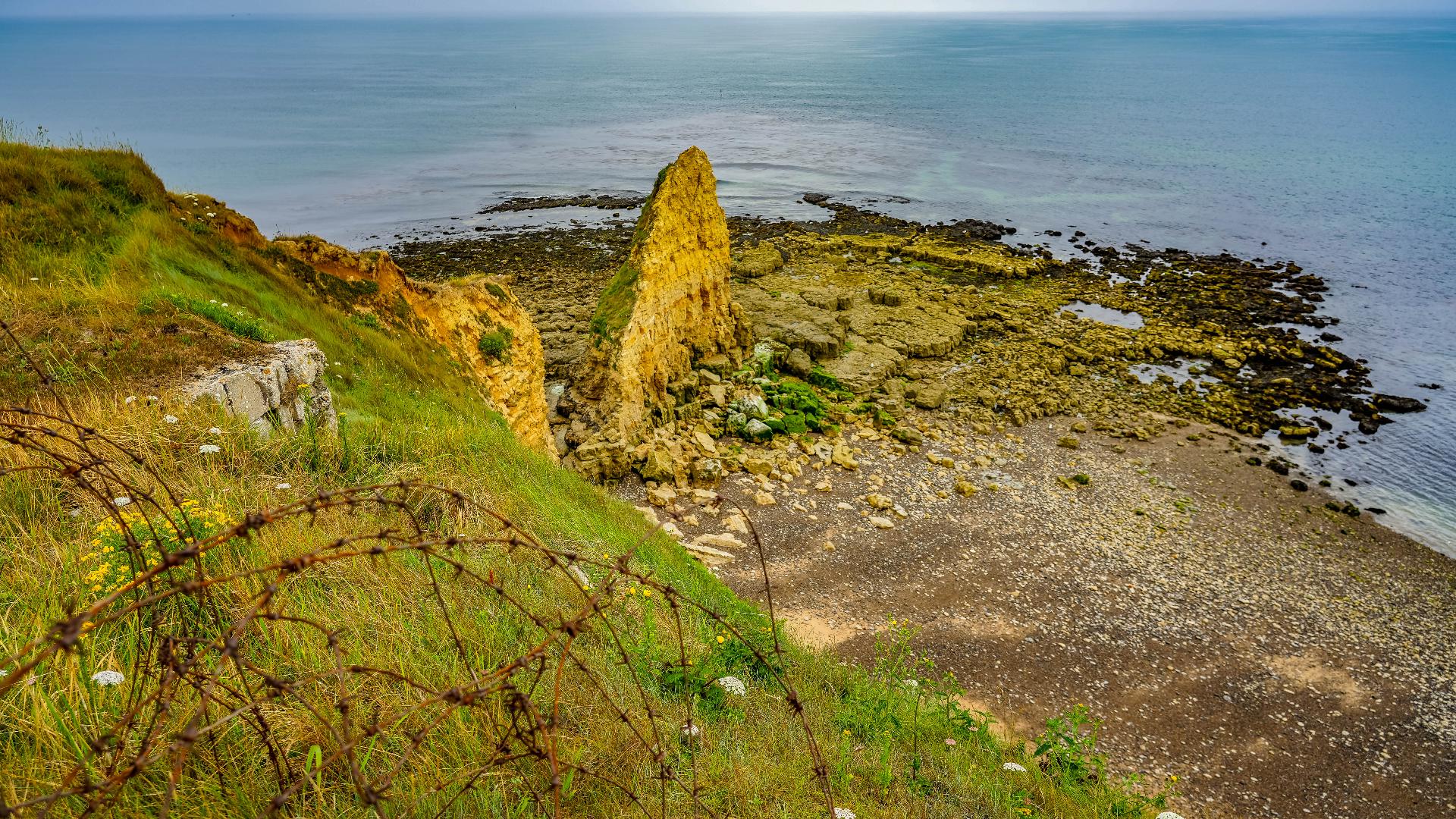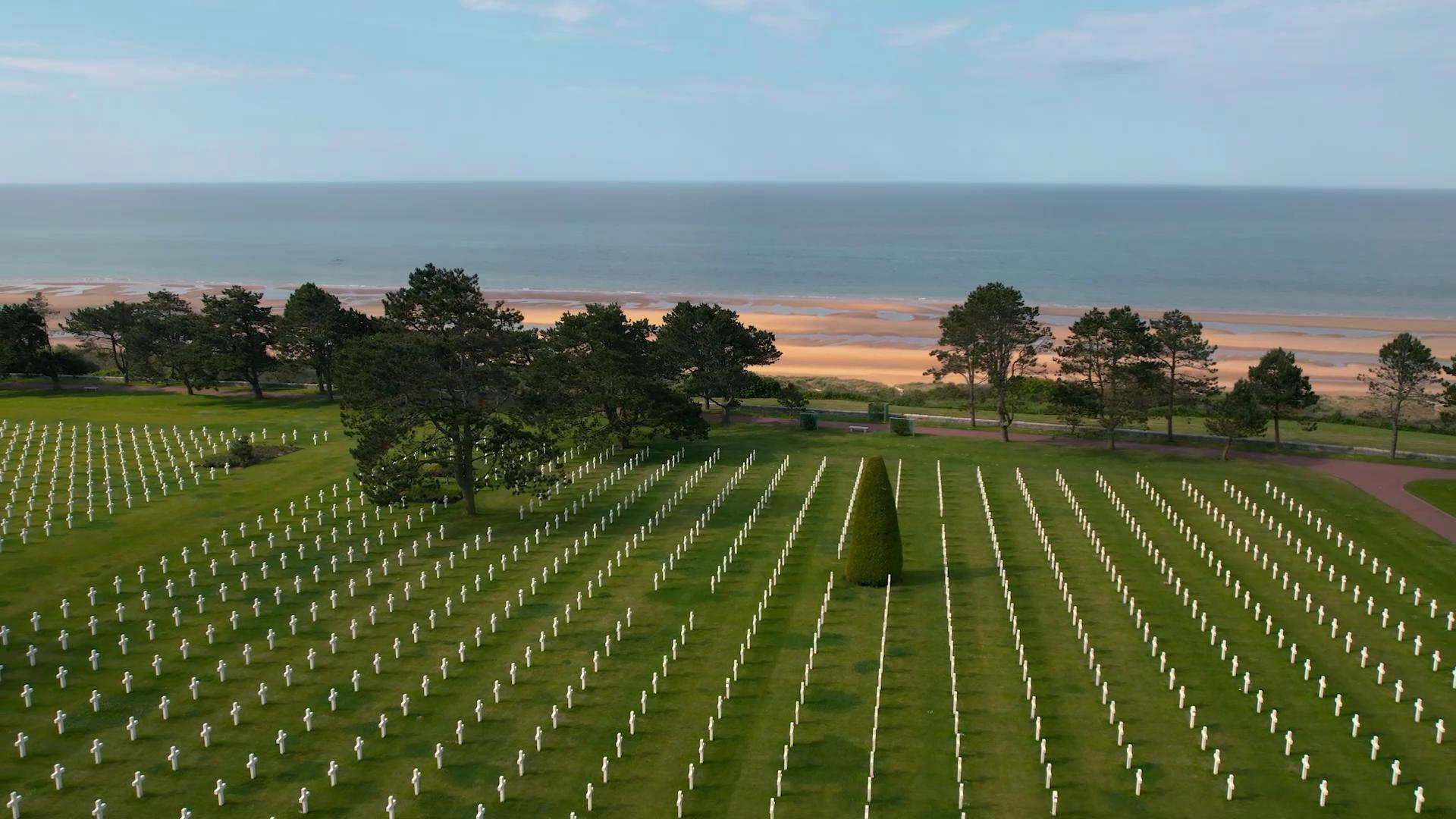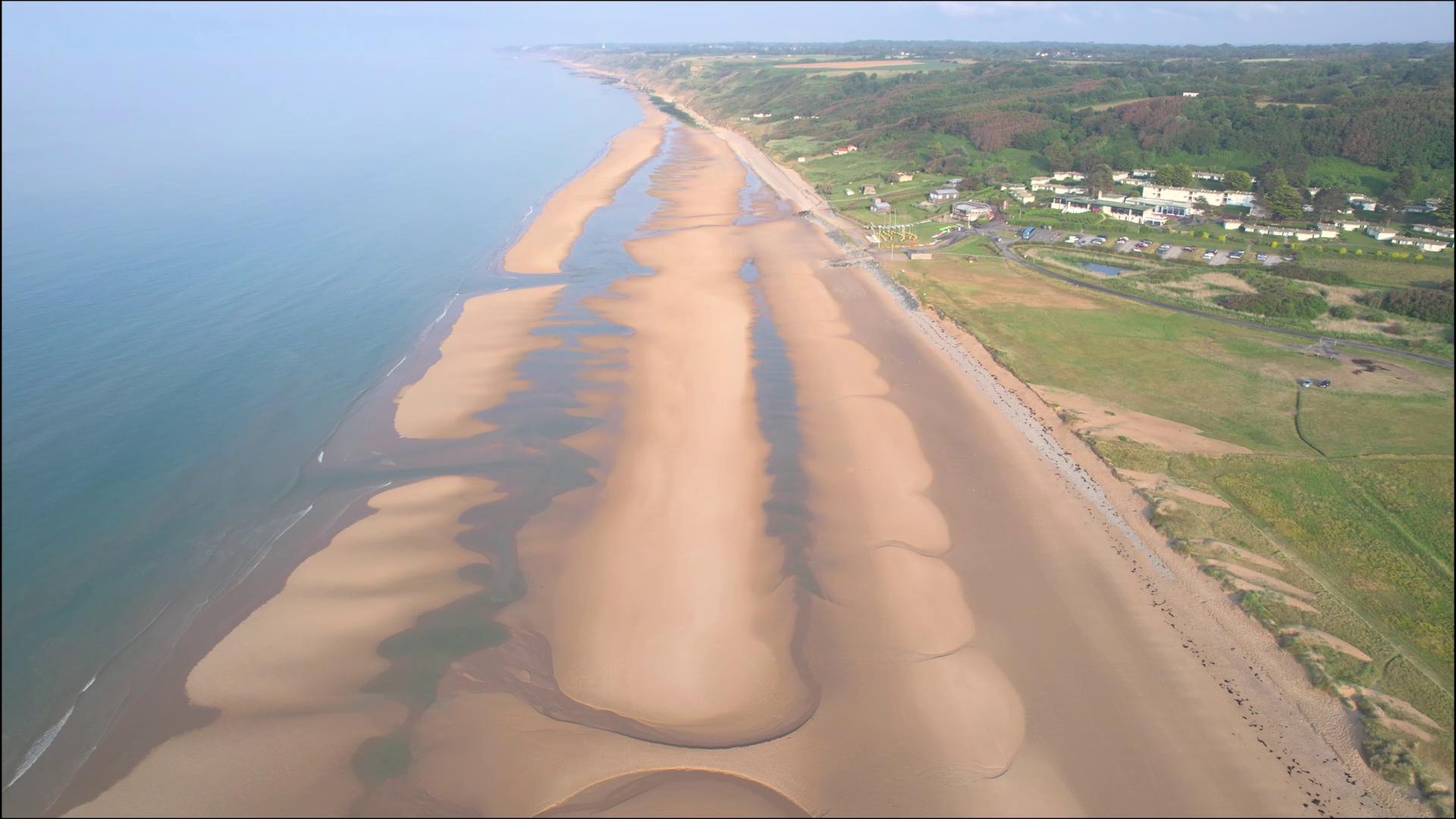NORMANDY, France — A sunrise over any beach is beautiful. Peaceful. And when you're the only one walking on the sand it's perfect. But this isn't just any beach. This place is part of D-Day history.
American troops and the Allied forces stormed the beaches of Normandy, France on June 6, 1944, to liberate Europe from Nazi, Germany during World War II.
"We're bringing 155,000 soldiers on day one. We'll almost double that on day two," said Scott Desjardins, the superintendent of the Normandy American Cemetery. "American soldiers will continue to arrive in Europe and all those soldiers need to be supplied and supported. In order to do that, we need the road network. That's why Omaha Beach is critically important."
The D-Day beach landings were bloody with an estimated 29,000 Americans killed.
"We're going to lose the vast majority of the first wave. Over 80% of the second wave," said Desjardins.
Army rangers had to climb up ladders at nearby Point Du Hoc.
"They had to face a 100-foot sheer cliff. It wasn't an easy incline. It was a sheer cliff," said Desjardins. "Those men practiced for months. When we had a chance to talk to these veterans many years ago, they told you climbing the cliff was not the problem. Holding onto Point du Hoc for two days facing six counter attacks was a huge problem. They again, we're outnumbered. The amazing thing is they were able to hold that ground. It was critical ground, said Desjardins.
"It had been heavily bombed in April and May to try and weaken that point. It weakened it to the point where the Germans, in order to save their guns, rolled them off Point du Hoc, about a mile back into an apple orchard," said Desjardins. "So, when our rangers get there, there are no guns at Point du Hoc. Those guns will be found. They'll be destroyed. The road will be captured by the rangers. And, the significance - it stops the Germans from getting reinforcements to Point du Hoc into Omaha Beach", said Desjardins.
The courage of all those involved with the Normandy beach landings would liberate France and save Europe.
On a cliff overlooking Omaha Beach is sacred ground. White crosses as far as the eye can see.
"9,388 heroes are buried here and another 1,557 are commemorated on the Wall of the Missing," said Desjardins. "So, in total we commemorate nearly 12,000 soldiers here."

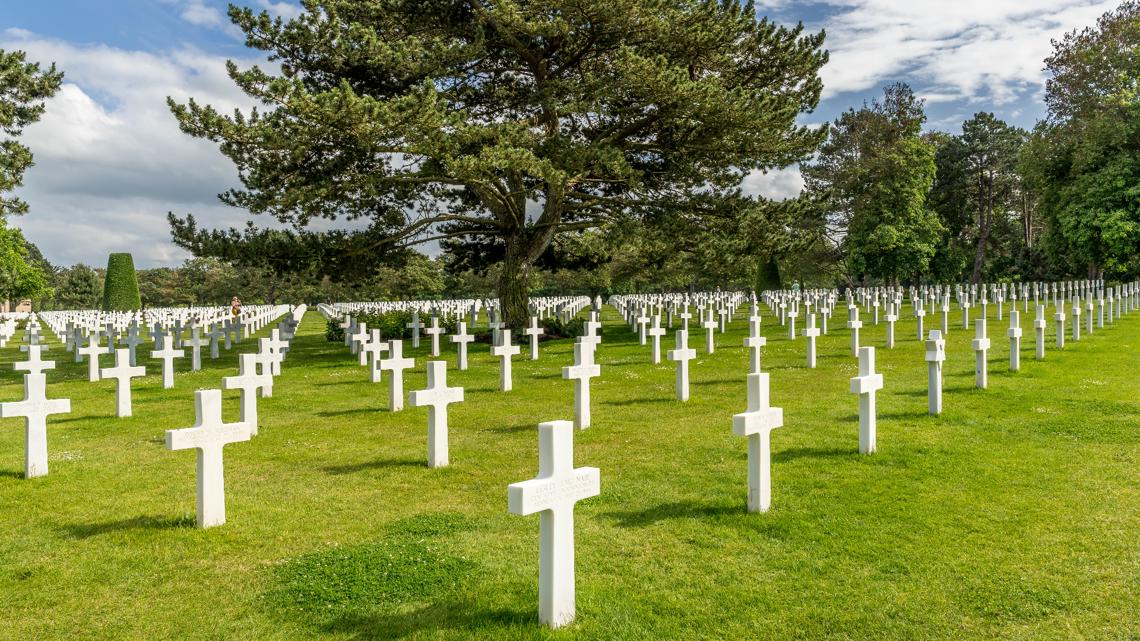
Desjardins is the Superintendent of the Normandy American Cemetery.
"As a former soldier myself, I consider myself a soldier taking care of soldiers," Desjardins. "Our number one priority when we wake up every day is the cemetery stays at the very highest standards because these men have earned it. Everything falls behind that", said Desjardins. "The next of kin is our second priority. Welcoming vets is our third priority. Educational programs are our fourth priority."
Approximately one million people visit Normandy American Cemetery every year.
"The heroes are here," said Christophe Lavielle. "They were killed, some of them before reaching the beach."
Thousands of French residents are part of the "Flowers of Remembrance" organization.
"Laying your flower is a way to remember," said Lavielle's wife.

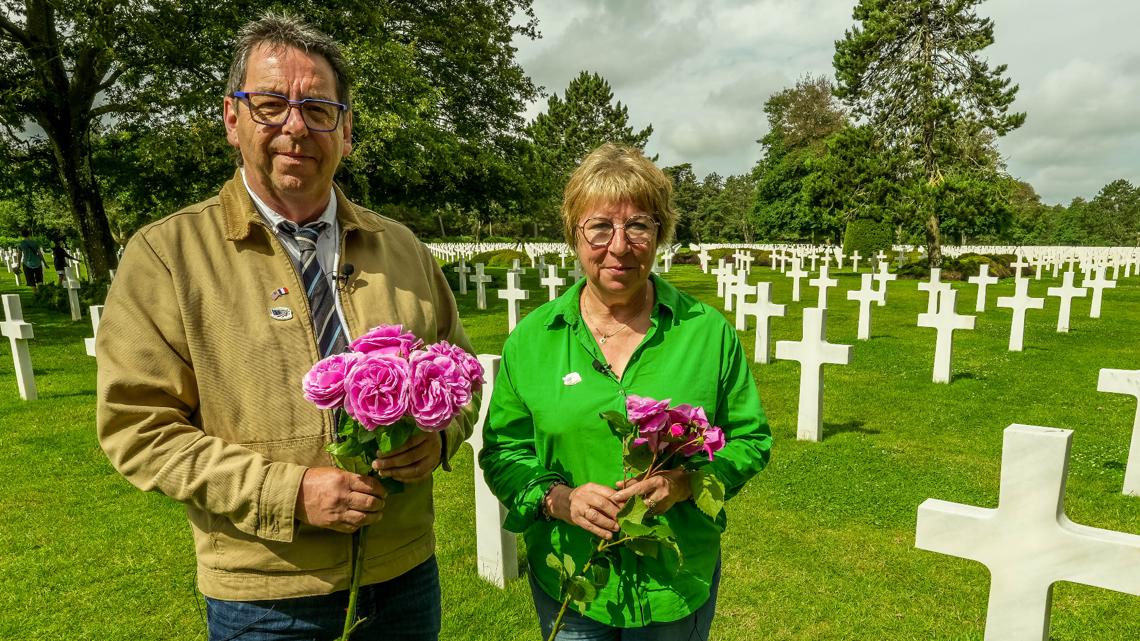
Thirteen-year-old Sloan Letellier and his parents came to Normandy American Cemetery to place flags and flowers at the grave of Robert Engle who was born in Pennsylvania.
"I was 11 when I first came here. It's important for our family. I'm interested in the history of the wars," said Sloan Letellier. "I'm sad for all the service members who left their wife and kids. I'm sad for them."
"He had a wife and two daughters. He came here to save millions of lives," said Aurelie Letellier. "It's very important for us not to forget. It's important because they left everything, their wife and their kids to come here to liberate us."
"I'm here because it's a day of remembrance. We need to remember what they did for us, France and Europe. We can never forget," said Mikael Letellier.

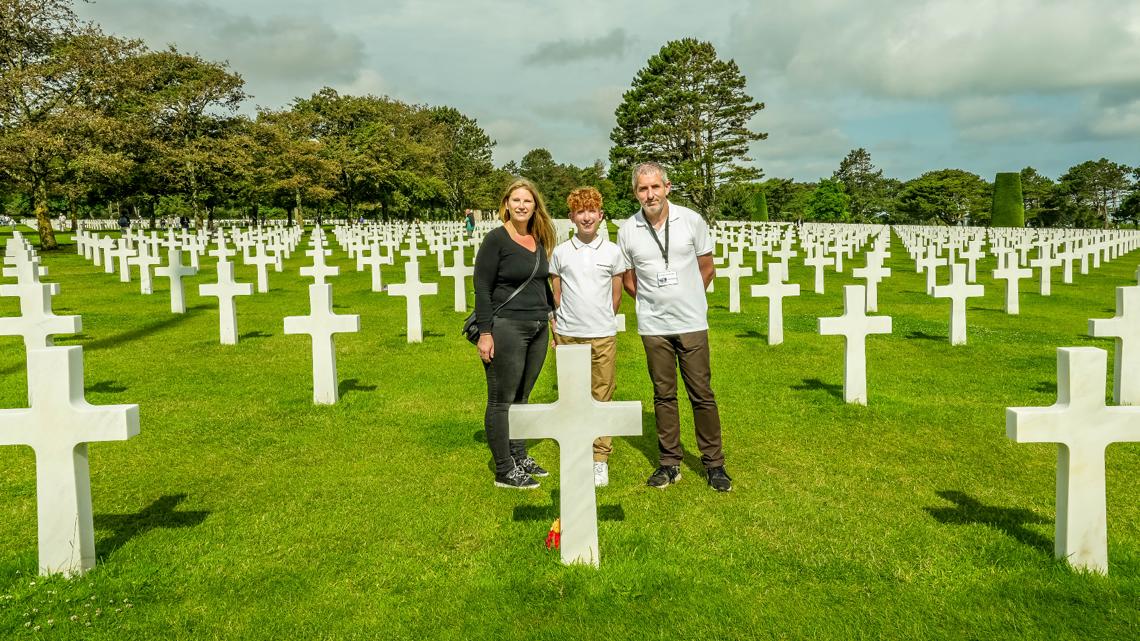
French residents who place flowers on the graves know the stories of those who made the ultimate sacrifice including the Lavielles who stop at a gravestone.
"Here is Claude F. Gee. He was a pilot. He was killed on the 7th of June, 1944," said Christophe Lavielle.
Lavielle's father Claude and Frank Towers created the association that encourages 5,000 members to adopt gravestones of veterans buried at the Normandy American Cemetery.
"This is very important for me, my family and my children. They all sponsor a grave," said Christophe Lavielle. "We come to the cemetery several times a year to lay some flowers on the grave of a soldier we sponsor. When you're here, you can feel the price of freedom and liberty, in my opinion."
"Freedom is always something fragile," said Gaetane Lavielle. "Laying your flower is a way to remember. Our job in this association is to remember the price they pay for our freedom."
They come to honor men they never knew.
"I'm here to honor the memory of Arthur Burrill who was killed in action on June 18th, 1944," said Mathieu Guillemant.
Guillemant joined the association in 2018 and established a connection with the history museum in Burrill's hometown in Springfield, Massachusetts. He has Burrill's graduation picture from high school in 1943.
"Soon after, he was drafted into the army and one year later he was killed," said Guillemant.
Guillemant places small U.S. and France flags at Burill's grave along with a patch from Burill's 29th infantry division and an insignia from the 175th infantry regiment.
Guillemant is now working on a project about veterans buried at Normandy American Cemetery.
"There are 18 men from Springfield who are buried there. From there I began to research to write a story for each of them. Then I joined an association which is called stories beyond the stars 2-3 years ago. Our goal is to write a story for each American serviceman and servicewoman who was killed or died in service during the war," said Guillemant.
Guillaume Boissel has an important role at Normandy American Cemetery. He cleans the white crosses with sand when family members of the fallen soldiers visit.
"It's a huge responsibility because for me as a French citizen, I know what kind of debt I owe to these servicemen and woman," said Boissel. "For me, it's one of the greatest honors in my life," said Boissel.

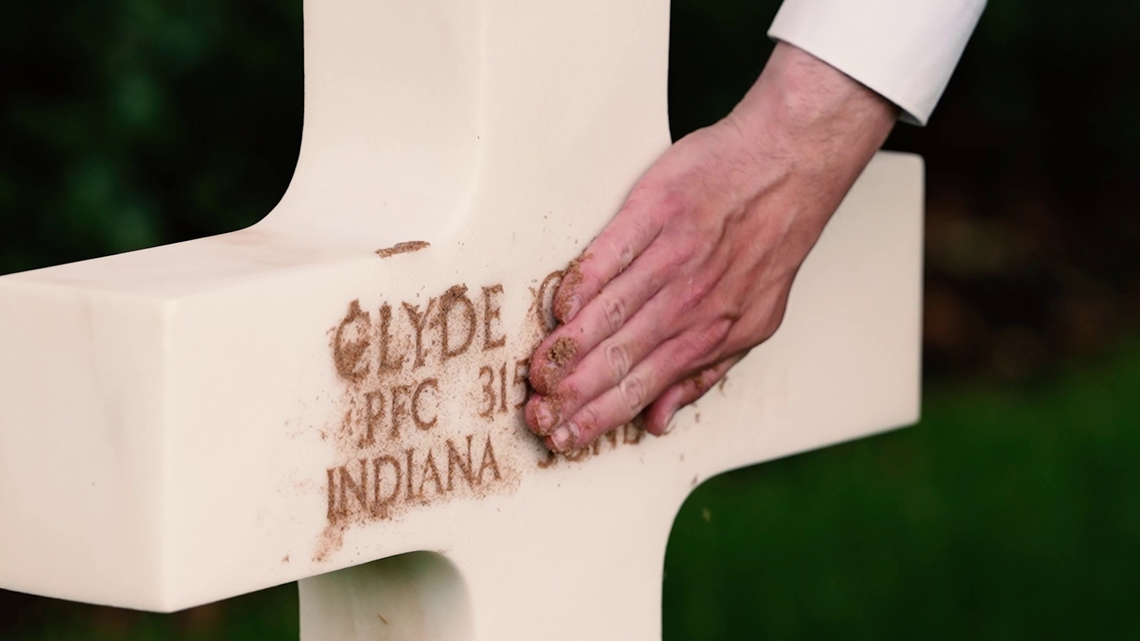
When we explain to people that we use sand from Omaha Beach, they are shocked and even more humbled when they see a grave that has been cleaned with this very sand," said Boissel.
Grains of sand from the very beach where many lost their lives now make the hero's name sparkle on the gravestone.
"Originally, it was done to bring out the engraving because white on white is difficult to see. It was discovered once we use the sand, it almost looks like it's gold leaf. It's very moving for the visitors," said Desjardins.
"The reason we use the sand of Omaha Beach is we know how much American blood was spilled on that sand to get our foothold into Europe. It is our foothold into Europe. It opens the door," said Desjardins.
Two of the graves cleaned with sand during our visit belong to two brothers from Indiana. George E. Greene and Clyde C. Greene are buried next to each other.
"They passed away nearly 3 days between the two. So, you can't imagine the pain for his father when they received the two Western Union telegrams," said Boissel.
Clyde Greene was the oldest of the two brothers. His younger brother. George was married with a son.
"Sadly, he never knew him," said Boissel. "He was born in 1943. So, his father was already in the U.S. Army and probably outside the U.S."
Forty-five pairs of brothers are buried at Normandy American Cemetery, most of their graves are side by side.
Every day ends with the stirring flag lowering ceremony at the Normandy American Cemetery. It is a stirring tribute to a courageous operation on the beaches of France 79 years ago.
"It's amazing how quiet the whole cemetery gets even if there are 3,000 people here. It's very moving," said Desjardins.
"It's important to remember their sacrifice and that today we can live free thanks to them," said Guillemant. "It's not only one man. It's all the men who made the sacrifice in France, in the Pacific and everywhere in the world. I just don't want these men to be forgotten."
Here in the Olympic host country, people remember the D-Day heroes every day.

